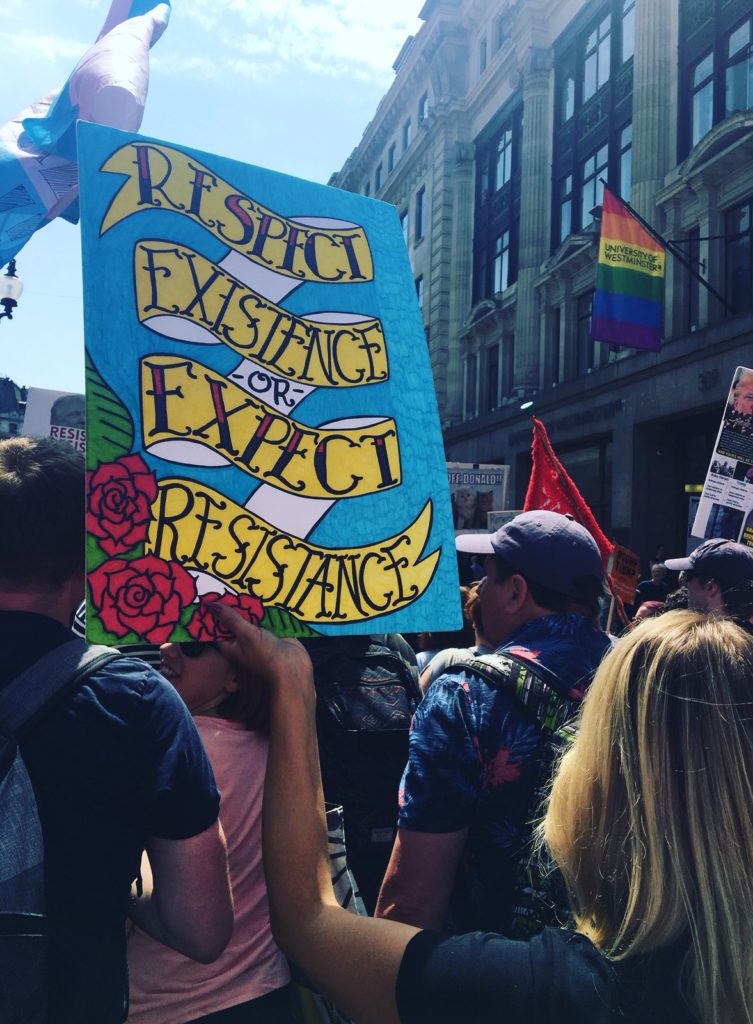It’s pretty hard to ignore politics at the moment. We know there will be an election in the UK this year. You can’t miss all the shenanigans in the USA. There’s a whole load of other countries going to the polls.
And that’s just elections. It seems every day brings up something that takes you into a political zone. The question is do you ignore it or embrace it with your content?
What does it even mean to be political?
In pure dictionary definition terms, then it means relating to the government or public affairs of a country, or just that you’re interested or active in politics. But being political can have different focuses for your content, both narrower and broader. Each comes with pros and cons, and may or may not be right for your business.
National politics
There are two routes to this. Either nail your colours to a particular mast, or stay silent. If you decide to go for it, then you’ll get the potential positive impact of your tribe finding you. And you’ll also get folk who decide you’re not for them.
I’ve written before about why it’s okay not to be for everybody, so it may be a strategy you want to pursue.
Where it gets a little sticky is when you either switch horses, or suddenly seem to make your allegiance clear, or at least more evident. The producers of Heck sausages got a lot of heat during one of the (many) Tory leadership campaigns for their photo opportunity with Boris Johnson. The hashtag #boycottHeck trended for a while. But when you look at the commentary then for every person saying they will boycott, there’s another one saying they’ll seek them out.
Never mind that the company has several times come out to say since that it intended no offence and has no political allegiance. In today’s fast-paced, and highly charged, political arena then these things have a habit of sticking, at least for a while.
I think you’d be hard pushed now, over 5 years on, to find many people who remember the case. Not to mention Heck is still in business.
Local politics
If you’re active in your local community, then at some point there’ll be an issue that is just as concerning to local folks as anything happening at a national level. It also comes with the same chance it could be divisive, although on a smaller scale.
For example, in my home town of Lyme Regis, there were many petitions and discussions on whether to allow dogs on the main beach and off the lead during the winter. There weree views on both sides. It made sense that local businesses like Pug & Puffin, whose business is all about dogs, should be a visible supporter of continuing to allow the dogs to frolic in the sand and surf.
I don’t think I’ve seen anyone propose a boycott, but presumably if you have a dog you are a) more likely to be supporting keeping the access to the beach and b) more likely to be a Pug & Puffin target customer. If you are not a dog owner, or lover, then you are probably not their target customer.
Back to it being okay to not be for everyone. You make an assessment of the risks, and make your choice.
Glocal politics
Sometimes the significant initiative plays out at a very local level. Again, living by the sea there is lots of activity around plastic-free and beach cleans. Lyme Regis is a plastic-free community, recognised by Surfers Against Sewage. A very global issue playing out at local level.
Tapping into this would seem like a lower risk move, as there’s both a critical mass of positive actions at an international and national level as well as then clear local action and benefits. I wonder if Seasalt might pick up the mantle from Joules who used to lead beach cleans from their seaside stores. Would be a positive action and a good brand fit.
Global politics
Extinction Rebellion. #MeToo. Youth climate strikes. Wars.
Massive campaigns with impacts in every country around the world and global activity. The places you’d expect brands like Patagonia to show up. But just because you’re a smaller business doesn’t mean you can’t have a perspective or be involved.
Again, you run the risk of some folks being offended or upset by your stance, but then the upside of people who have the same view. Some businesses and brands are known for being political and actively political. Others play it straight down the middle, at least at an outward-facing level.
So, should your content be political?
There’s no right or wrong answer here, apart from what is the right thing for your business. What’s in your business manifesto, what do you stand for? Or perhaps the question should be what would you fall for?
You can also choose how you choose to respond to differences of opinion. Will you be combative or understanding of the right to hold a different, or even opposite, point of view? Will you divide or bring together? Your choice.
What will you choose?

